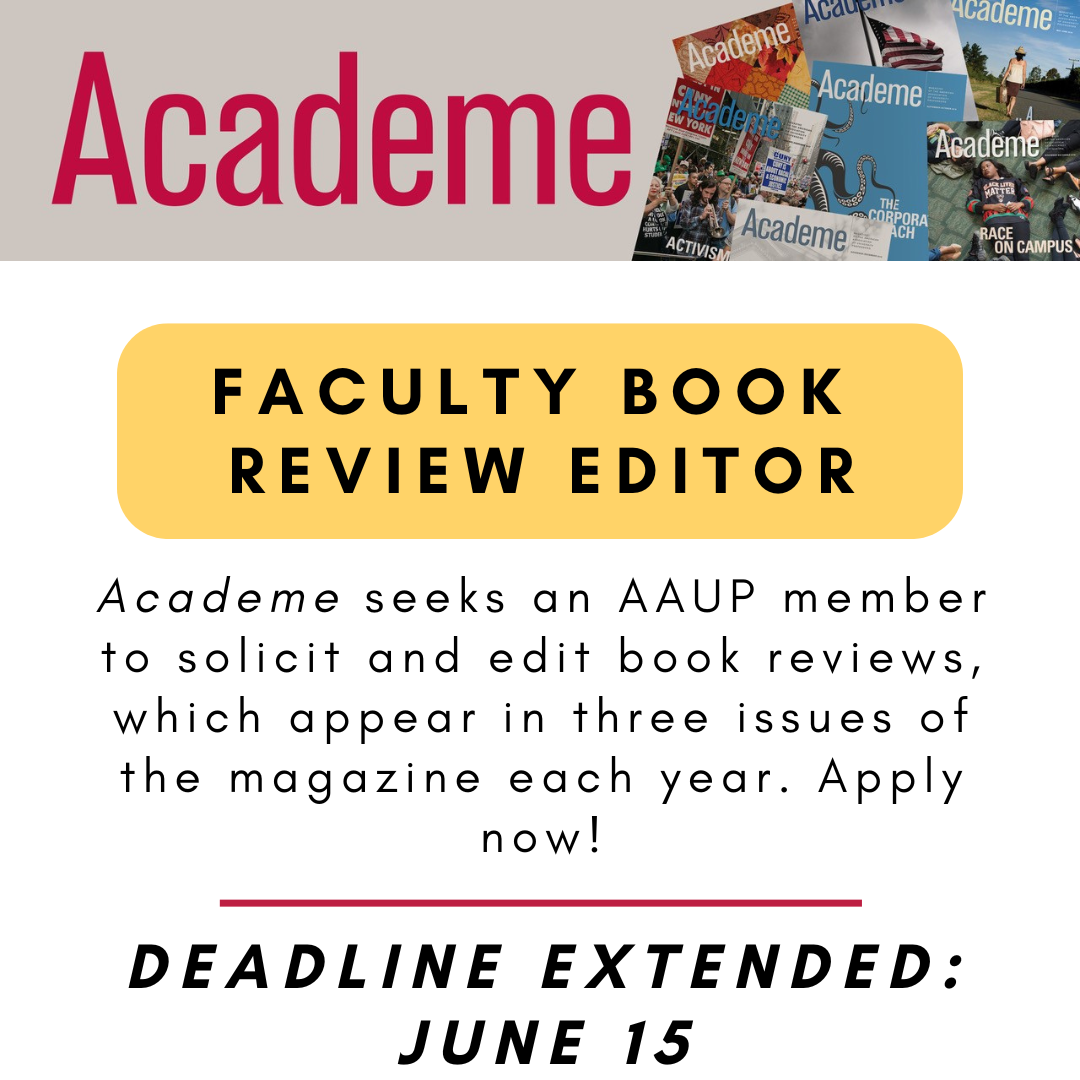- About
- Programs
- Issues
- Academic Freedom
- Political Attacks on Higher Education
- Resources on Collective Bargaining
- Shared Governance
- Campus Protests
- Faculty Compensation
- Racial Justice
- Diversity in Higher Ed
- Financial Crisis
- Privatization and OPMs
- Contingent Faculty Positions
- Tenure
- Workplace Issues
- Gender and Sexuality in Higher Ed
- Targeted Harassment
- Intellectual Property & Copyright
- Civility
- The Family and Medical Leave Act
- Pregnancy in the Academy
- Publications
- Data
- News
- Membership
- Chapters
Statement on Discrimination and Equality
In recognition of the dangerous and ongoing backlash against movements for equality, Committee A on Academic Freedom and Tenure approved at its October meeting a new statement On Eliminating Discrimination and Achieving Equality in Higher Education. The statement, also approved by the Committee on Historically Black Institutions and Scholars of Color and the Committee on Gender and Sexuality in the Academic Profession, incorporates elements of and expands upon the 1973 report Affirmative Action in Higher Education and the 1999 report On Processing Complaints of Discrimination. Published on the AAUP’s website in January, the statement appears at a time when fierce assaults on higher education are threatening the progress made on racial and gender equality. According to the statement, discriminatory attacks on efforts to advance knowledge about race, gender, class, sexual orientation, gender identity, and disability are inseparable from a larger and even more dangerous campaign against core academic values—including shared governance, academic freedom, and tenure—and learning itself. Not simply a response to the political moment, the statement reasserts the AAUP’s fundamental and enduring commitment to holding colleges and universities accountable for accomplishing their highest purpose: serving the public interest through teaching, research, and service, thereby enabling an increasingly inclusive democracy to fulfill its role to protect and advance the common good in a complex and interrelated world.
The statement canvasses the responsibility of the academic profession regarding systemic discrimination. It reaffirms the description of affirmative action set forth in the Association’s 1973 report as “essentially the revision of standards and practices to ensure that institutions are in fact drawing from the largest marketplace of human resources in staffing their faculties and a critical review of appointment and advancement criteria to ensure that they do not inadvertently foreclose consideration of the best-qualified persons by untested presuppositions which operate to exclude women and minorities.” The statement also addresses the role that unconscious bias may play in a range of academic decisions and emphasizes that progress toward substantive equality is tightly bound to the observance of principles of academic freedom, tenure, and academic due process. In response to the Supreme Court’s 2023 decision striking down affirmative action programs in college admissions, the statement concludes with a call to colleges and universities to meet the challenge posed by the persistence of systemic discrimination.





